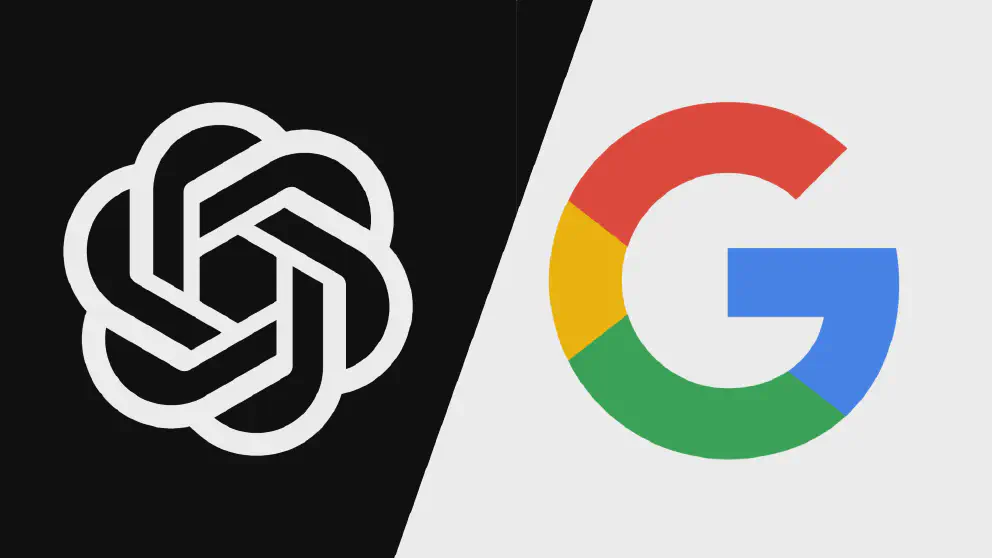In early 2023, OpenAI updated one of their project, ChatGPT, one of their many AI projects that specifically generates text that respond to a human prompt. From there, ChatGPT capture the public imagination. With a single question, ChatGPT can make a sonnet, scripts for a YouTube video or a blockbuster movie, and even write complete codes to make useful programs.
Such is the response, the story goes, that the klaxon alarms in Google headquarters started to ring and the management team has gone into defensive mode. There is talk about this being a “code red” moment and Google has even bought back their semi-retired founders to fend off the “attack”.
But behind the buzz, what is exactly ChatGPT, and what makes it so special that it gained the attention of Google’s executive to go into a defensive mode? This is not a deep dive article but rather a summarized article to see the difference between using ChatGPT and Google Search and why it makes Google’s executives lose sleep at night.
Executive Summary:
- OpenAI updated their text generative model AI called ChatGPT and it sends the world a buzz
- Feats like ChatGPT writing high-quality essays, movie scripts and even computer code from a prompt query have captured the public’s imagination. But there are limitations like inaccuracies and not up-to-date data.
- ChatGPT stands for Conversational Generative Pre-Trained Transformer. It generates new text patterns based on a large training dataset (data up to 2021) by using the transformer model in response to user prompts.
- Google’s business is ads, not search engines. The Search Engine is the moat for Google’s business. It prevents other competitors from attacking Google’s castle, the ads business.
- ChatGPT has a castle problem. ChatGPT is a good moat to take away traffic from Google but no clear way to generate a massive amount of money like Google. And powering ChatGPT uses a lot of resources (and money) for OpenAI, the company behind ChatGPT.
- Google went into “code red” because ChatGPT aims to take way Google’s traffic -> Google’s ads revenue. Rumors say that Google actually has a better model than ChatGPT but wouldn’t release it because it will hurt Google because of the moat problem.
- Currently, it is too early to tell where this will go because if this is a boxing match, it is just round 1.
ChatGPT
ChatGPT stands for Conversational Generative Pre-Trained Transformer. It is developed by a private company called OpenAI which counts people like Elon Musk, Peter Theil, Amazon, and Y Combinator as their early investors. OpenAI was created as a research lab to study deep learning in computers and apply that knowledge as technology demonstrators and possibly new products. One of their many results is ChatGPT: an AI model that generates new text patterns based on a huge training data set that uses transformer model to generate said patterns. The patterns are a response to prompts that are input by humans.
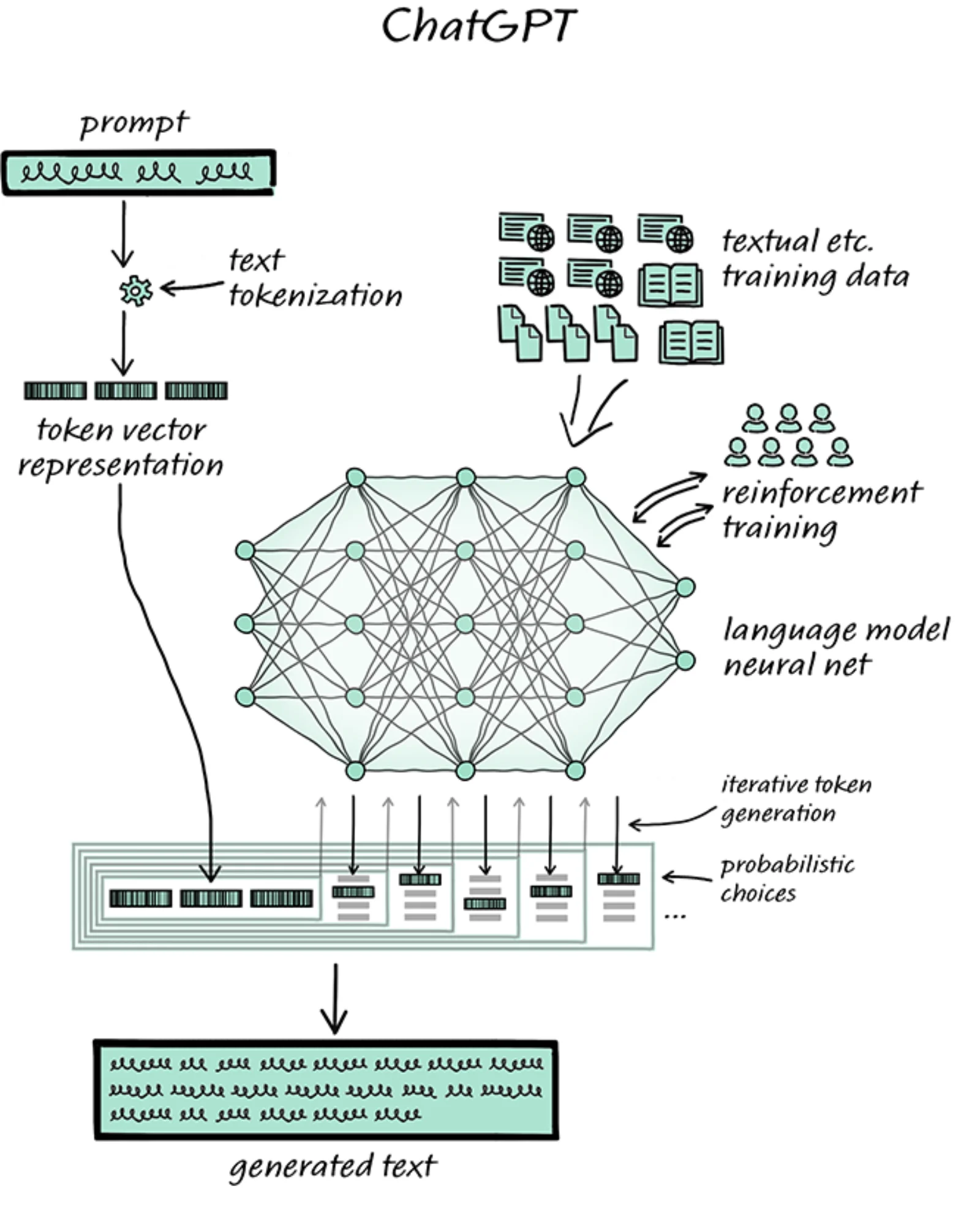
So in English, there is this huge computer that reads the data from the internet (up to 2021 according to them), understands and catalogs that knowledge. Then a human would ask the computer a question, then the computer would analyze the question and would respond based on the knowledge catalog that it posses. There is some AI processor, which mimics how a human brain works on a very simplified level which will generate the necessary texts to respond to the prompt.
The whole idea of ChatGPT started from a paper that was wrote by Google Researchers (yes, the irony) called “All you need is attention”. A blog on medium goes into great detail on the mechanics of this model which you can read here.
ChatGPT apparently is good enough to write AP English Lit. Although it does not give the correct answer, writers are right to be worriedSo far, the model can write essays that are good enough to pass (not ace) English AP test which to say better than most flesh and blood humans. The video can be found below.
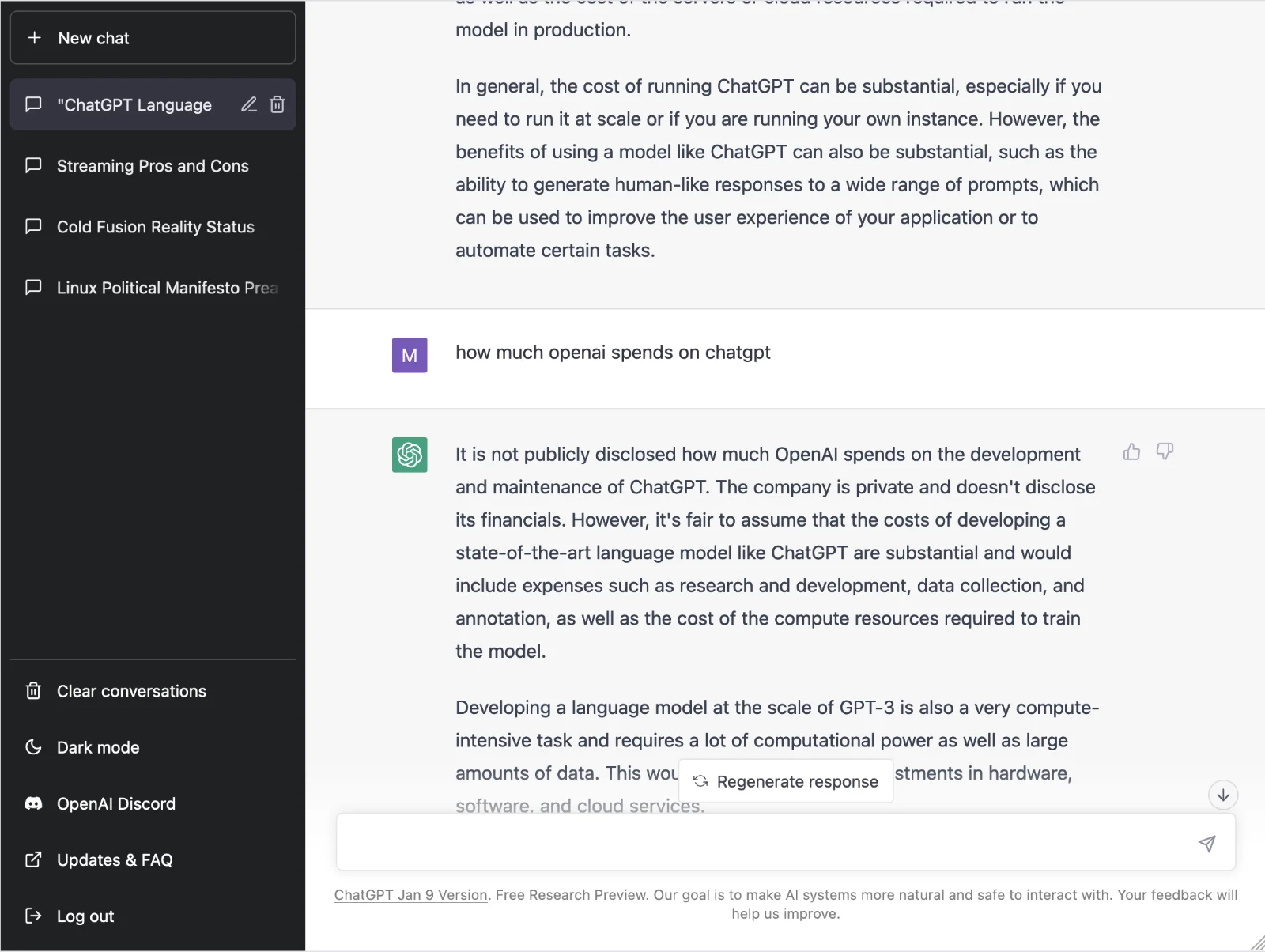
Google Search
Google on the other hand, is basically invented the term “internet tech giant”. Their mission statement is deceiving simple: “Organize the world’s information and make it universally accessible and useful”.
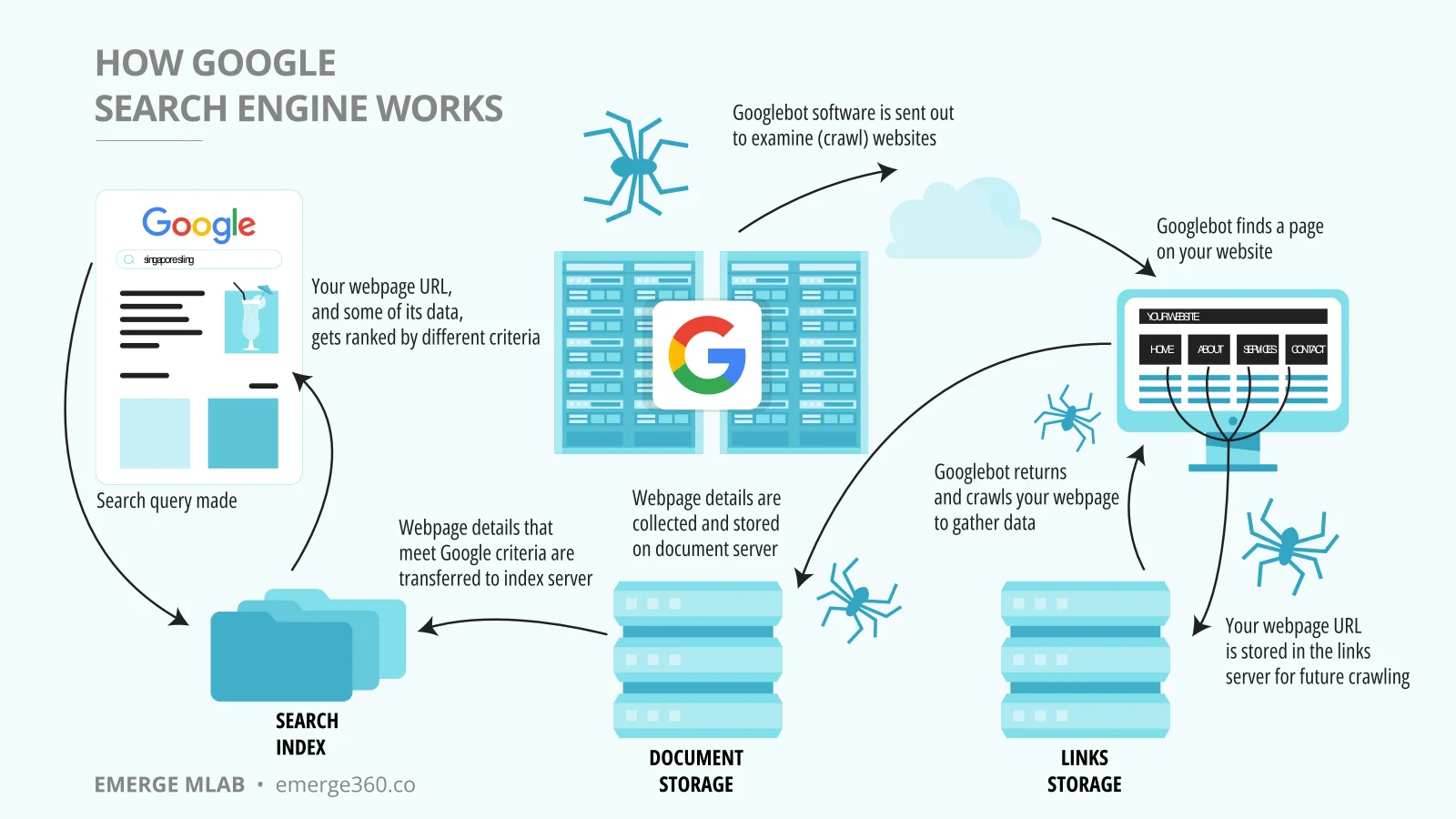
What put Google on the map is not the creation of the search engine, there are a few of them before Google, but it was the first useful search engine. It gives you the results that you want and over the years, knows exactly how you want it.
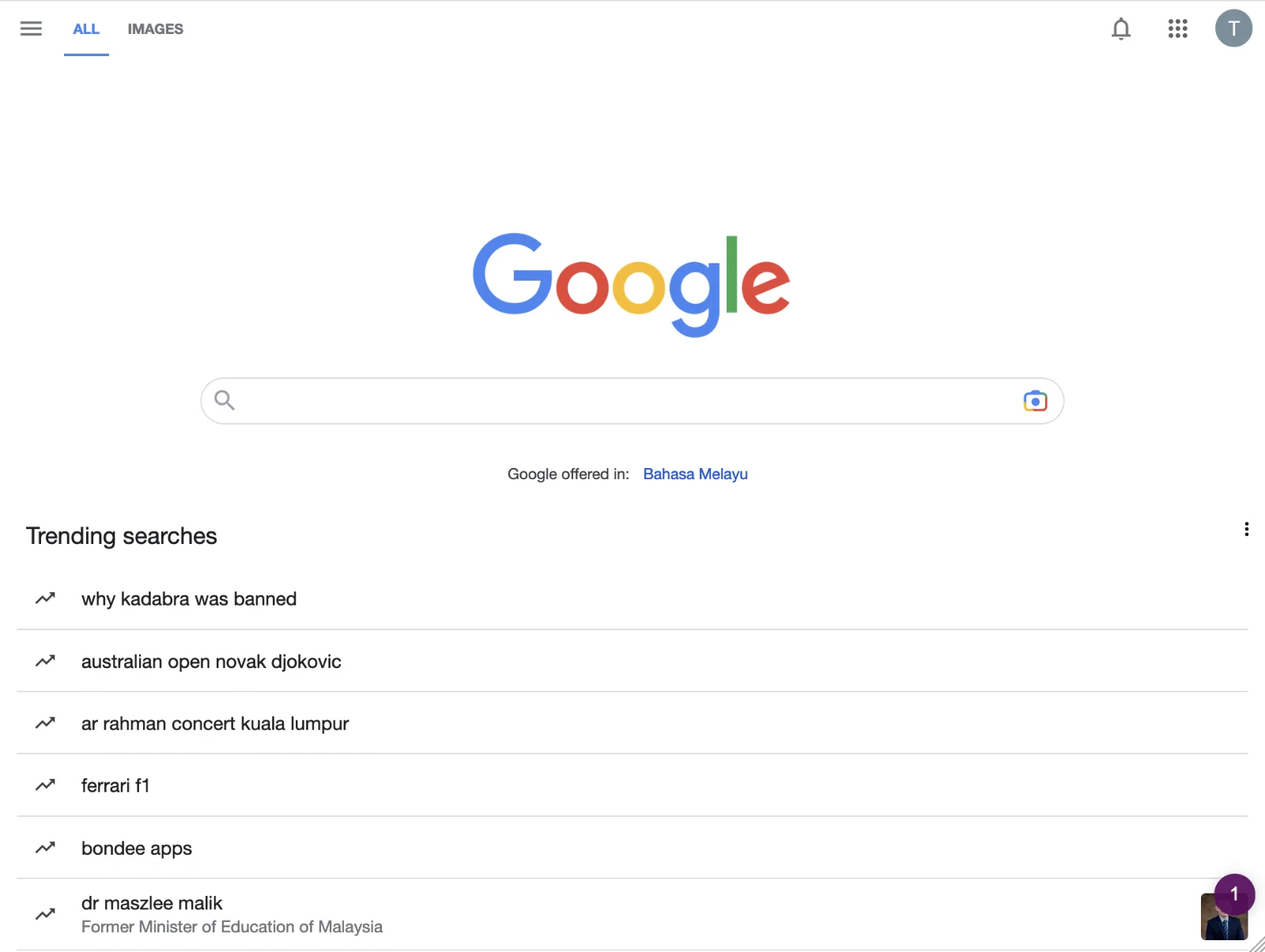
The way Google organizes the data is to go out into the internet and crawl over billions and billions of web pages. You can say this is their training data. They not only capture the webpage content, but they also analyze it, catalog it and rank the page. The final step was important in the early days of Google where they know how to rank which pages that are important and influential.
Like all great Silicon Valley companies, Google started as a PhD research project and later grew to be the multi-trillion company that it is today. Google grow from one success to another. Android OS which powers billions of smartphones, Google workspace, YouTube, and Cloud computing are the many multi-billion companies that Google owns. But the bread and butter is the search engine business that Google monopolized. For now.
Why Google is afraid of ChatGPT
When one thinks of Google, one would think that Google the search engine company. Wrong. Google is actually an ad company. Google sells ads either on their search engines or on other people’s websites, which Google gets a cut. This also extends to other facets of their business like Youtube and Google Workspace. In fact, the Google ads business is a 150 billion dollar business.
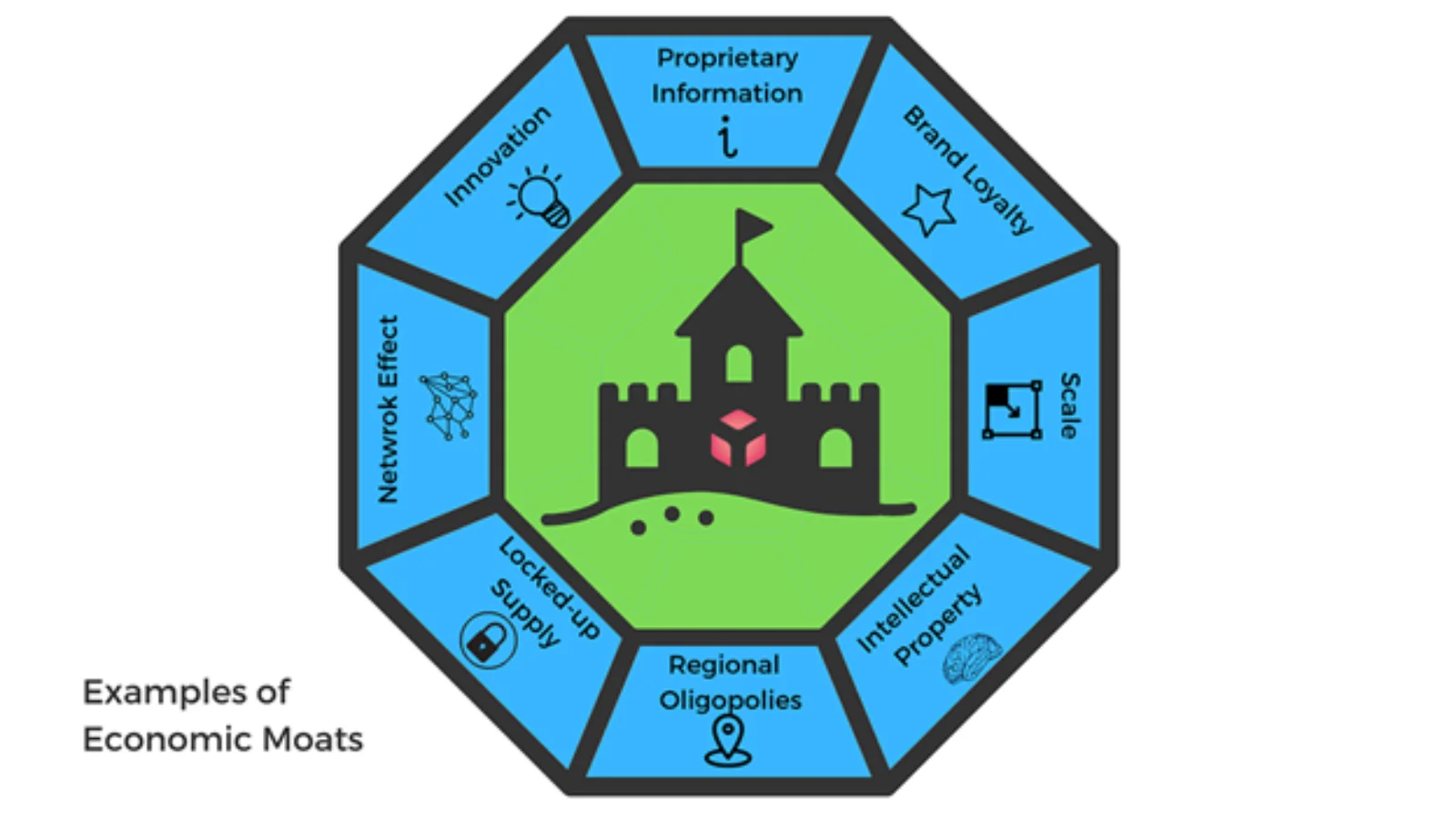
Google search business is actually a moat for Google crown jewels inside Google’s castle. You make a very good search engine and give the service for free and people would come in droves to you site where you sell the ads everywhere. Other businesses follow this same trend Apple’s crown jewels is the product and their moat is the ecosystem that they give away for free. Microsoft’s crown jewels are its Office and Windows software which they maintain backward compatibility for free.
ChatGPT is a threat to Google because it attacks Google’s moat. Most people who go to Google are looking for the answer to one’s burning question and Google is the guy who’s pointing in the right direction. Now there’s a chatbot that basically saves you the extra step of going into other people’s website and just straight away gives a convincing answer, why do we need Google again? In other words, ChatGPT can take Google’s traffic away because it’s an easier path for the end-users. And lower traffic is bad news for Google.
ChatGPT problems
While ChatGPT is a threat to Google, everything is not a bed of roses in ChatGPT. First and foremost, there’s the money problem. While OpenAI, the company that is running ChatGPT is backed by people with a lot of money, they are investors who want to see returns on their inventions. And the major problem for ChatGPT is how this magic box is going to make money.

Google has perfected money generation tactics from a prompt query. Humans key in their prompts, and then they see results that have ads on them. They go into the websites that they suggest and they see ads on them. So everywhere you go, there will be ads.
ChatGPT, on the other hand, has solved the prompt and result problem but hasn’t solved the profit problem. While results might be better than Google’s results, it still has the problem of making money from the whole process. So far, ChatGPT is offering a $42/month “Pro” subscription. Do remember Google answers are free, which is Google’s “moat” to their ads business “castle”. ChatGPT should work in the same manner.
Another ChatGPT problem is that the entire idea of ChatGPT comes from a Google research paper. Who’s to say that Google with larger resources from OpenAI doesn’t have its own solution? There’s a rumor running around that Google actually have their own AI chatbot which is said to be far better than ChatGPT but Google is reluctant to release it because they haven’t found a good way to make money from it. Some people who even use Google chatbot seems to think that it is sentient. I guess Google’s nuclear option is to release their own Chatbot in hope to destroy ChatGPT.
Conclusion

If the fight between Google and ChatGPT is a boxing match, it is round 1 between the legendary “Iron” Mike Tyson and an upcoming hotshot. It is too early to tell where this fight will go but it will be an interesting fight that many will want to watch the conclusion.
Another thing about information technology grows so far is there are many iterations of trial and error. Some grow into billion-dollar companies. Most die off. Tech companies come and go. Many die young. There is a saying that one should be wary of an old man in a profession where people tend to die young.
